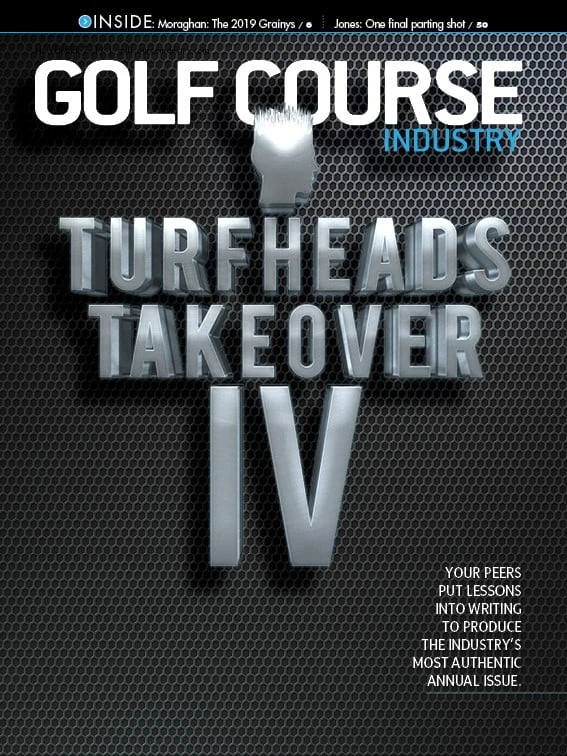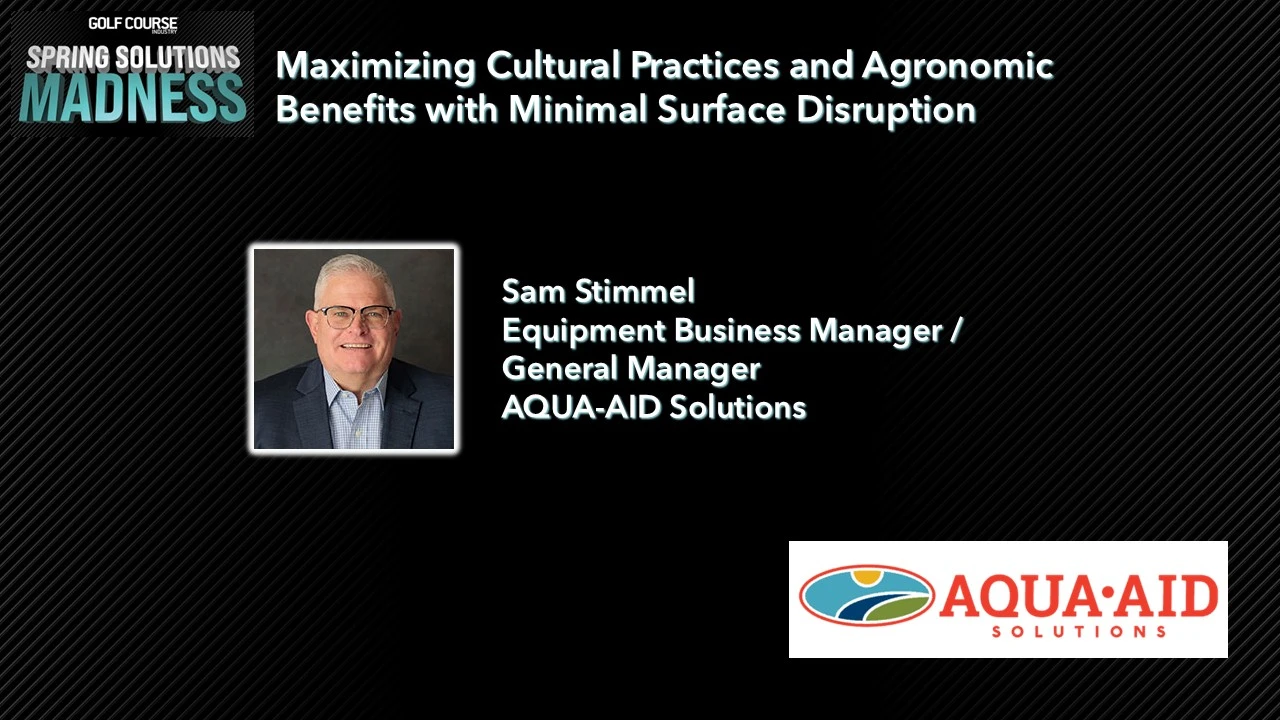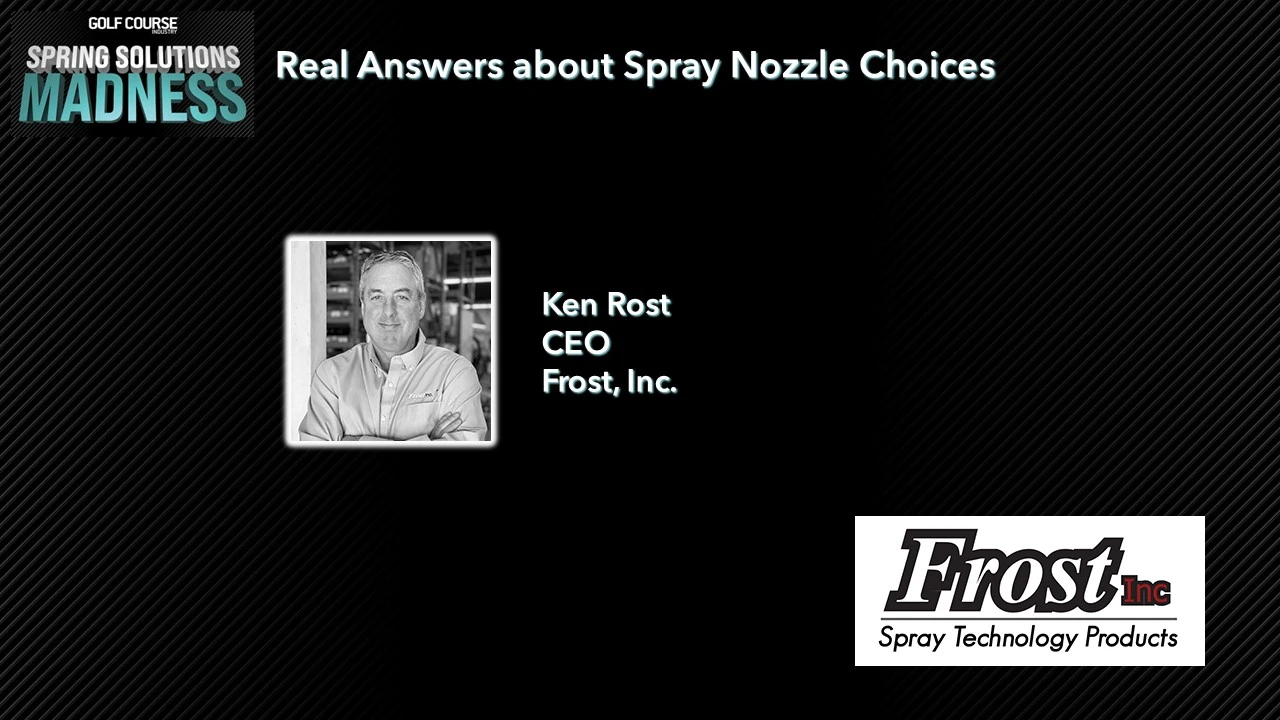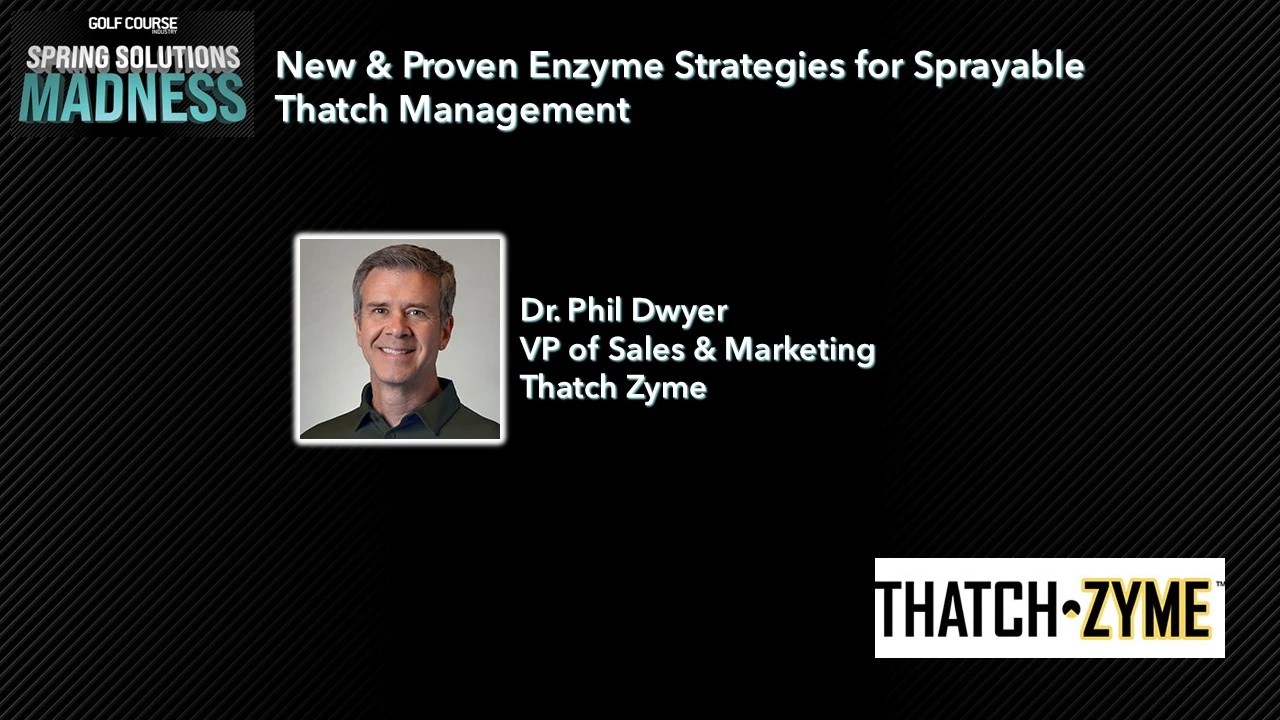

I was standing in Target looking at deodorant when I got the call. It was a brief call, to the point, and over before I could really absorb that it was happening.
I got the job.
My first emotion was excitement at receiving a superintendent job, which was quickly followed by a quick, somber realization: “Holy s---, I got it.” From that moment on, less than 10 seconds after accepting the job, I was a superintendent and the fun was just about to begin.
All the preparation and experience that led you to the job, through the interview process, and finally securing your job provide a building block to your success. But every property is different with different golfers and different environmental circumstances. To repeat, it is different. Your first year will be a blend of new challenges and moments that will draw upon your past experiences. During my first year, I went through new experiences and familiar moments that I would describe as echoes of what I had been through before. My first year was filled with challenges that tested my anxiety, drew upon almost two decades of experience, and to my surprise, the most fun I have had at work in a long time. Every day, I was invigorated and excited to drive to work, even on the days when my internal anxiety was heightened.
As I approach the end of the year, I’m thinking back on my successes and what tips I would offer another agronomist who is about to make the next big step. These principles may not work for everyone at every facility, but I feel they are key elements that got me through my first year.
Establish relationships
Among the core values of this industry are the relationships. They will be part of your bedrock of success within your golf club, your association and among your peers. Introduce yourself and learn the names of staff members at your club, from the department heads, to the dishwashers, to the front office. When you meet those people again, greet them by name and act professionally. Meet and greet as many players as you can so you are recognizable, especially if you are at a private club. Make sure to introduce yourself before you are asked who you are. Attend club events that work into your schedule, especially big events for which people will expect the best conditions.
On my second day as a superintendent, I played in a member event as a substitute, providing an excellent icebreaker with the membership. If you are new to the region, immediately get involved with your local association, attend events and look for opportunities to interact with your fellow agronomists. Golf and social events hosted by your local GCSAA chapter are great networking opportunities while also providing a short reprieve from the daily grind.
Regarding sales representatives, persistent sales calls and visits can be frustrating when you are busy starting a job, but handle them professionally. My first two weeks in New Jersey were peppered by business card drop-offs and first meetings with sales reps. For those calls, set guidelines and inform sales representatives what you prefer when scheduling appointments, as opposed to being aggressive or standoffish.Find local turfgrass resources
There are going to be moments when you have more questions than answers for an agronomic problem. You could look up information on Google or ask your peers, but you may need an expert’s opinion, so find your closest turfgrass resource whether it’s a university or a cooperative extension. These resources can provide localized information on diseases, turf pests, climatology and soil science data. Local turfgrass education sources can also be used for disease diagnosis or soil sampling. Rutgers University is a 25-minute drive and the disease diagnosis can be returned in a few hours. Also support these research facilities by attending field days or by joining a local turfgrass association.
Review property conditions before you start making changes
It’s easy to walk onto a property, take a deep breath and proclaim, “I’m going to double cut and roll every day, topdress biweekly, deep tine twice a year and mow every playable surface every day with walk mowers.” Sounds ambitious. Good luck.
Get out on the golf course and dig around to see exactly what you are working with before you draw broad strokes and potentially make promises you can’t keep. You can ride the golf course the first day and take notes on every single detail or idea that you have. Look at it as a wish list with an unlimited budget. With that list in hand, prioritize what you think is accomplishable in certain time frames and update the list as ideas and suggestions come to you.
After you have your list together, compile as much data and information as you can. You researched the property before you interviewed, now cut the course open and start to look at the inner workings of it. Take inventory of equipment, chemicals, fertilizer, accessories, buildings, course structures, maps, soil samples, past site visits, disease samples, course photographs, committee meeting notes and application records. If you have been at the property for a while and are inheriting the superintendent position, look at all this information again as if it was the first time.
Ride the golf course, walk the golf course and, most important, play the golf course. It is extremely easy to lose track of what needs to be done on a golf course when you fall into the view of the course exclusively from the seat of your cart or a sprayer. Look at the course from tee to green from a playing perspective by walking the course (if you can). Playing it with your staff, the golf shop or other club staff can present new perspectives and educational opportunities.
Communicate
Your day-to-day job is going to be a lot easier if you communicate your plan and the anticipated results. Identify the channels of communication your club uses, whether it’s a digital platform that includes apps, websites and social media, or analog methods like newsletters. If you are using social media, make sure your content is appropriate for your club and respectful of the position. I have always believed that if you wouldn’t want something on the front page of a newspaper, it shouldn’t be on social media.
When communicating with others, make the information accessible and avoid excessively technical descriptions. A complicated agronomic discussion can be very difficult if the vernacular or details are too advanced for your audience. In the same regard, don’t water down the conversation to the point where you may sound condescending.

Mentally prepare yourself for mistakes and challenges
If you think you’ll never make a mistake, you’re in trouble already. Failure is a part of life and is a critical part of the learning process. The notion that you will never make a mistake, never lose some grass, neglect a beloved rhododendron or accidentally go over budget is a failing mentality.
Failures will happen. The important part is acknowledging and identifying them with a solid communicated plan moving forward. Once again, communicate, communicate, communicate.
Like a politician in a movie or show, the best position to be in is out in front of the narrative. When problems arise or communication starts to decline, it’s natural for people to come to their own conclusions and you will fight a losing battle with informing your players about the cause of the problem and the solution. Failing to stay ahead in communication will allow your players, members or even your staff to answer their own questions.
Even if you never make a mistake — congratulations! — there are going to be inevitable challenges that will test your skill set. Weather, staff issues, changes to laws and Murphy’s Law are waiting around the corner to trip up your well-communicated plan. The same principles apply: develop a plan, execute it and communicate.
BUILD UP your staff
Your staff is the backbone of your operation and you can’t do your job without them, so get to know them. You might be nervous about working with a new staff and the easy part is they are just as nervous as you are. With a new boss, staff will be uneasy about what the future brings. Talk with your staff and take the time to work with them. Your staff has seen different parts of the golf course at a close detail and can provide valuable history that might not be documented. Be careful and take what they say with a grain of salt. Time can sometimes distort facts. If you are moving up within a golf course that you have been at for a long time, address the changes with your staff but also maintain the working relationship has changed.
You may inevitably find yourself in a position where the staff will have a less than professional viewpoint on their past superintendent or they may start conversations with, “Well, before we used to do this.” First rule in this case is to maintain professionalism while stressing that the golf course and the department are moving forward. I told my staff in the first few weeks I was on property that we were going to learn from what was done in the past, but by doing so in a progressive direction. There is no honor is beating down the past superintendent or practices there.
Take notes and document
Find a good notebook or use a notes app on your smartphone to keep track of what you are seeing on the golf course on a daily basis. I keep a simple daily log of work completed, observations, short-term tasks and long-term tasks. Each morning, I transfer the uncompleted tasks to the next page or move the tasks to a long-term tasks list. The overload of information when you are working may result in small details falling through the cracks. Staying organized will help prevent that. Even something as simple as documenting the course with your smartphone can help keep you stay organized and on track.
See and be seen
Part of your job requires you to play a visible role on the golf course. Being hands-on and working on the course is a part of it, but there are times when you must play a visible role to your players, especially to a membership at a private club. If you are free, be sure to drive around the property and interact with members while working with your staff.
When you are around players or members, keep yourself clean, wear appropriate clothing and make sure you act professionally. If you are a tobacco user, try your best to quit or abstain from using those products in front of players. I am frequently chewing sunflower seeds, and I consciously avoid spitting shells on greens or walking around the clubhouse with a cheek full of seeds. If you are privileged to be invited to an event at your club in a formal or informal setting, politely abstain from drinking alcohol, engage in conversation and act professionally.
When you are off property, present yourself as a professional at events or around town as you never know when a player will see you. You are a representative of your club and acting like an ass while you are wearing you club logo can be a bad image for who you work for.
Be prepared to work
You really wanted this job, now continue to work just as hard to keep it. Show the people who hired you that you were the right person for the job. Your first year is likely going to be a long slog of tough days, missed nights out with friends or limited time away from the property. Don’t neglect your life outside of the course. Find opportunities to recharge yourself. When you return to work, be back at full strength and push hard.
Take a step back
More than once in my career, I have become quickly consumed by the simple minutiae of the job and turning the smallest things into a major issue. It took a supervisor to stand in front of me, point at the golf course, remind me that I was doing a good job, and tell me that all the pressure was internal. It’s great to have high standards for yourself and your work, but there is a fine line between working hard for a goal and unattainable perfection. Recognize when you are doing a good job and find the moments to appreciate the work you have done before heading back to the trenches.

Explore the December 2019 Issue
Check out more from this issue and find your next story to read.
Latest from Golf Course Industry
- Disease Discussion 24: Let the turf talk to you
- From the publisher’s pen: Foggy intrigue
- USGA releases Water Conservation Playbook
- Vilamoura Golf courses awarded GEO Certified status
- GCSAA’s Health in Action 5K/2K reaches fundraising goal
- Landscapes Golf Management to participate in data analyzation initiative
- Reel Turf Techs: Carl Michael
- Atlanta Athletic Club approves funding for master plan





